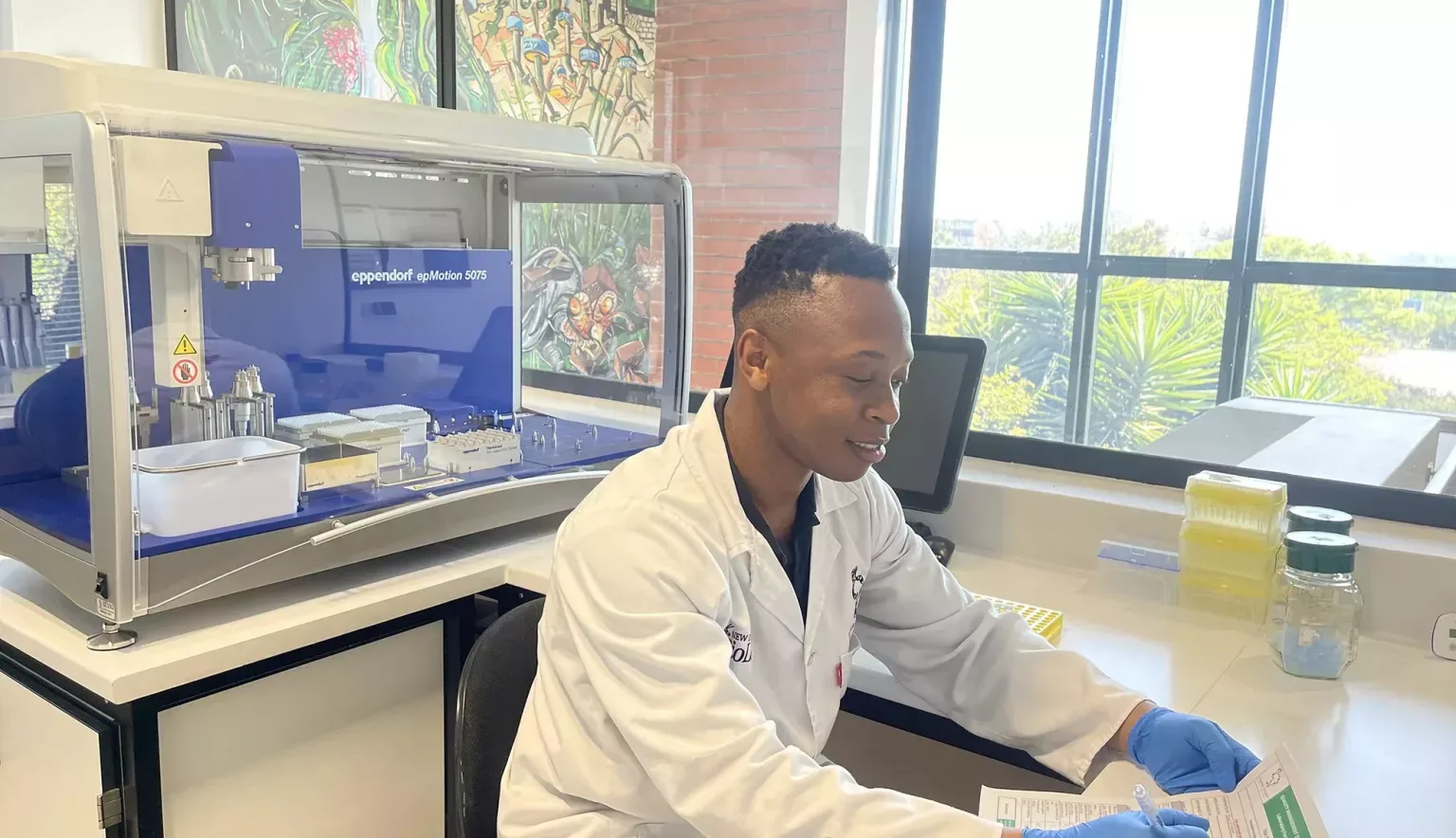Marking its 20th anniversary as a leader in genomics in Africa, Executive Director and co-Founder of inqaba biotec, Dr Oliver Preisig, examines a molecular approach to advancing life sciences across the continent.
INTRODUCTION
In the native South African language of isiXhosa, the word ‘inqaba’ is the name for something rare and precious. For Pretoria-based African Life Sciences company inqaba biotec (inqaba), the moniker pays homage to its proudly South African origin and tagline as ‘Africa’s Genomics Company’.
Rewind the decade to the year 2000, and a public bus in Pretoria is where the inqaba story began. It was here where co-Founders Dr Oliver Preisig (a molecular biology researcher at the University of Pretoria) and Dr Joaquim de Gama (a law student at the time) would frequently travel on the same service to the university, striking up a friendship and sharing conversation.
Based on the strengths of their shared skillsets, the two conspired to launch a business dedicated to DNA sequencing and oligos synthesis, after noticing a serious gap in the African biotechnology landscape for such a company. The two shared the idea with friends back home in Switzerland and Germany, and shortly after, in 2002, inqaba was born; the collective brainchild of four scientists and one lawyer. The path to providing efficient, cost-effective, and innovative products and technologies to geographies across sub-Saharan Africa, had begun.
TWO DECADES OF EVOLUTION AND INNOVATION
Originating with its headquarters in one of Pretoria’s oldest districts, Muckleneuk, inqaba has since spread its wings with additional offices in Tanzania, Kenya, Uganda, Ghana, and Nigeria. This began with the Kenyan subsidiary launching as inqaba biotec East Africa Ltd in 2010, followed by inqaba biotec West Africa Ltd registering in Nigeria in 2014.
This relentless pace of expansion continues today, with the most recent introductions of Senegal and Uganda, and Cameroon next on the agenda for this year. From the small team of entrepreneurs behind its inception, inqaba has grown to encompass over 150 members of staff across its operations.
“Our original idea behind the business was to start a genomics company that offers DNA synthesis and DNA sequencing services locally in Africa,” recalls co-Founder and Executive Director, Dr Oliver Preisig.
Over the past two decades, Dr Preisig has witnessed the technological evolution that has flourished within the space.
“The market and the technology have changed significantly since that time. At the beginning, we could sequence a few thousand bases per day, but now we can sequence gigabases. Data generation now far exceeds what was possible 20 years ago.”
Reflecting on this milestone of two decades in operation, Dr Preisig credits the reputation that the company has earnt during this time as a major contributor to its ongoing successes.
“We have developed a reputation over the past 20 years as a company that delivers and keeps to our word.
“We don’t over-promise, and in general, we are seen as a genuine company. Of course, mistakes happen, but we are known for never running away from a problem,” he tells us proudly.
Inqaba itself has shifted and expanded in line with such developments, keeping pace with innovation and maturing with the market.
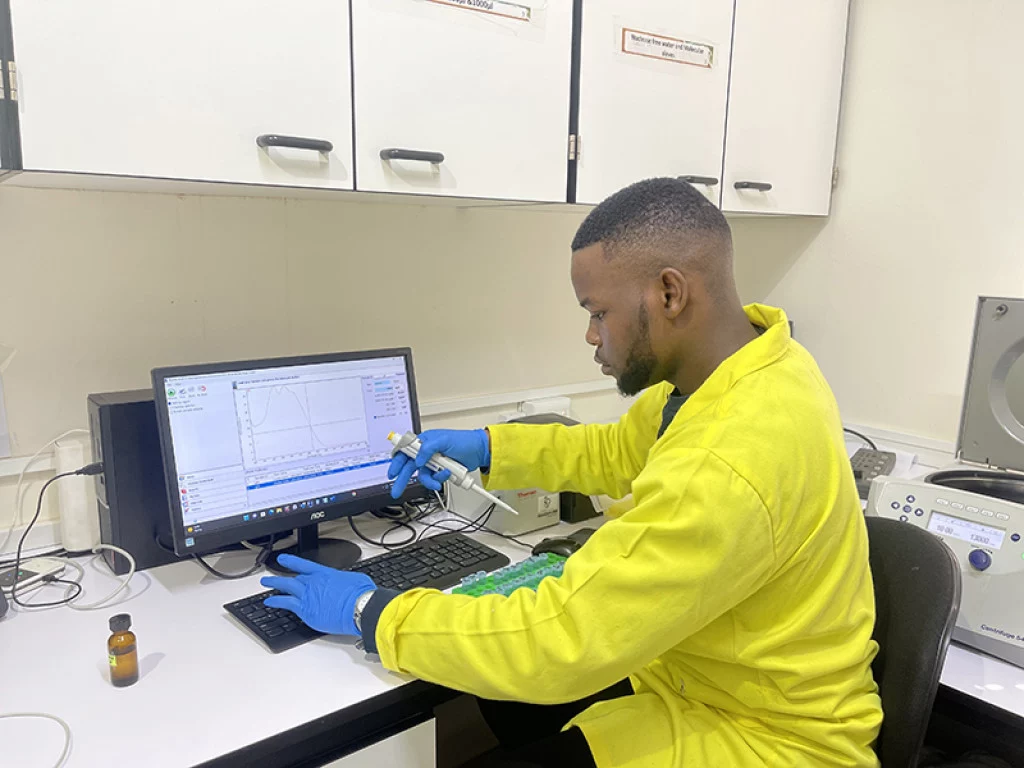
AN UNPARALLELED SERVICE OFFERING
Inqaba’s core services comprise DNA synthesis (primers and probes), Sanger DNA sequencing, Bioinformatics solutions, next generation sequencing (NGS), qPCR analysis, animal genetics, instrument service, repair and maintenance and finally SNP genotyping and methylation analysis.
Complementing this expansive service offering is a diverse portfolio of industry-leading products which inqaba distributes on behalf of reputable brands, in addition to providing after-sales service and technical support. These products cater to molecular biology, cell biology, molecular diagnostics, proteomics, software, biochemicals, food testing and plastic consumables.
“We have a broad portfolio, from services that we do ourselves to products that we sell from suppliers. Our distribution portfolio includes life science products, biochemicals, and other diagnostics products from different suppliers, ranging from the US, Europe, to South Korea,” he elaborates.
The international life science brands which inqaba distributes include laboratory equipment and consumables from Eppendorf, molecular biology reagents from New England BioLabs, nucleic acid purification and isolation systems from Zymo Research, and cell culture reagents from BioConcept, to name a few.
For Dr Preisig, it is the sheer breadth of the services and products that inqaba can provide that resembles a key market differentiator for the company.
“First of all, it is the strength of our portfolio that defines us,” he states.
Effectively, this comprehensive suite of solutions positions inqaba as the one-stop-shop for Africa’s life science needs.
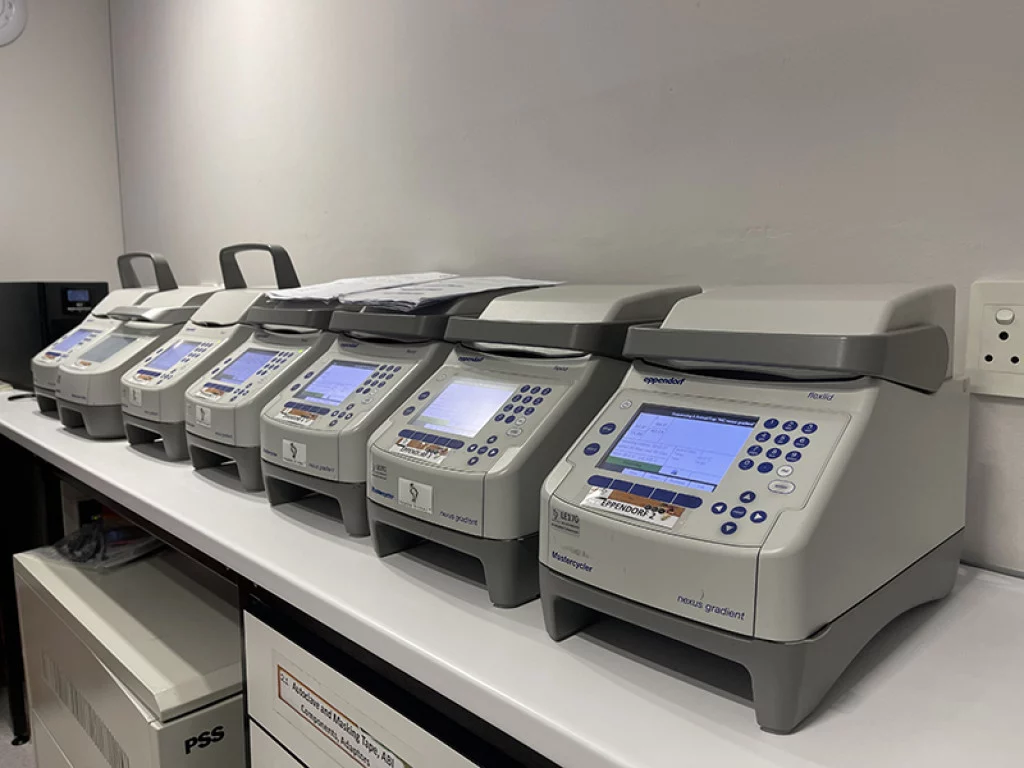
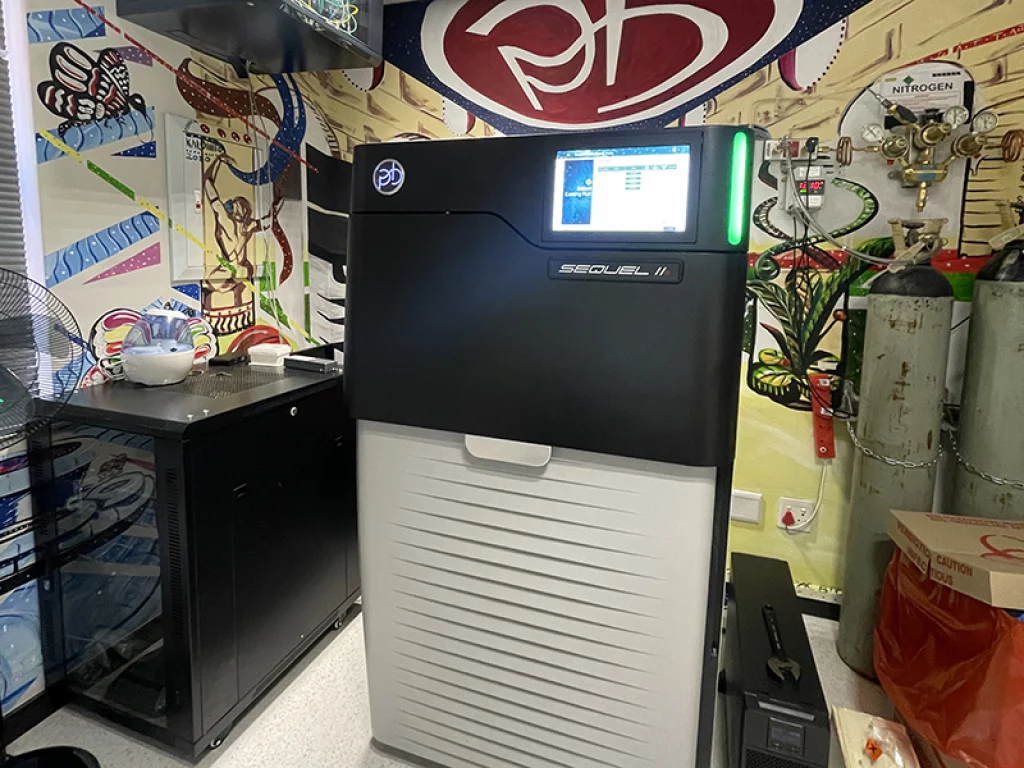
TECHNOLOGY AT THE CORE
Across inqaba’s portfolio, the application of technology within these varied fields is a constantly shifting phenomenon.
“The application of the technology has changed, so we try to find the right application for each kind of technology,” Dr Preisig comments.
Indeed, the technology behind genomics services has advanced significantly since inqaba first began offering genome sequencing using sequencing technology from 454 back in 2007.
At the time, this technological application made inqaba a pioneer in its field, occupying the forefront of innovation by being the first to offer genome sequencing services on the African continent.
Today, inqaba’s services centre on innovative technologies that are redefining industries across Africa, from life science to health science, and agriculture to food science. These technologies include Agena Bioscience’s MassARRAY® System and PacBio’s Sequel IIe Sequencing Systems. The latter is a state-of-the-art sequencer that inqaba began to use in 2020.
Sequencing has grown to find applications across a host of fields, as seen in the food industry where such technologies can undertake species identification.
“For instance, if someone encounters a new bacterium in a laboratory and they don’t know what it is, it’s easy to perform a DNA test on it,” he explains.
Elsewhere, inqaba’s animal genetics services by ZooOmics, provide a myriad of accurate genetic tests (health, colour, DNA fingerprinting) to the domestic, livestock and wildlife industries. Its laboratory is state-of-the-art and holds the gold standard in sequencing and fragment analysis technologies. This might involve genetic disease screening services, or parent verification.
“In this division we work mainly with farmers, livestock breeders, dog breeders and those working with wildlife. It’s a good example of an applied technology and we are trying to find more of this,” says Dr Preisig.
“We have developed a reputation over the past 20 years as a company that delivers and keeps to our word”
Dr Oliver Preisig, co-Founder and Executive Director, Inqaba biotec
COMBATTING COVID-19
With qPCR analysis a core component of inqaba’s services, the past three years have been unprecedented in highlighting the necessity and relevance of such tools. Unsurprisingly, the company rose to the fore during the course of the COVID-19 pandemic.
“The pandemic was a good but extreme example, where suddenly certain products didn’t have much demand while for others, the demand increased significantly.”
Naturally, with the need for qPCR testing, molecular diagnostics was an area that received heightened attention.
“Throughout the pandemic, everyone came to know what qPCR and genome sequencing meant. Before 2020, no one outside this field had really heard of those words or knew what that kind of testing was. Now, it’s an integral technology in our field,” he shares.
Inqaba stands out as the only company in Africa to commercially produce custom oligonucleotides.
“These are the short DNA molecules that are used for the PCR, qPCR and sequencing applications,” Dr Preisig explains. “They are specific to certain regions of a genome within any species, so they need to be custom made.
“When we started in 2002, our business model was that we produced these custom oligonucleotides within one day for the customer, so they can start working on their project.”
This overcame a crucial hurdle for researchers, who would typically have to wait two weeks for access to these oligonucleotides which needed to be ordered from overseas. Meanwhile, in Europe and other regions, they would be available within the day. As such, inqaba proved a game-changer for African molecular diagnostics.
“During the pandemic, researchers worldwide analysed the genome sequence of the virus which allowed the design of primers that would amplify specific regions of the virus, which in turn enabled the detection of SARS-CoV-2 by qPCR,” he outlines.
“In the beginning, commercial kits were not all so readily available, so some labs reverted to doing their own kits and their own tests. This was when we focused on mainly producing these primers.
“While we normally work on a lot of different kinds of primers, throughout that time we focused on a large amount of that specific kind.”
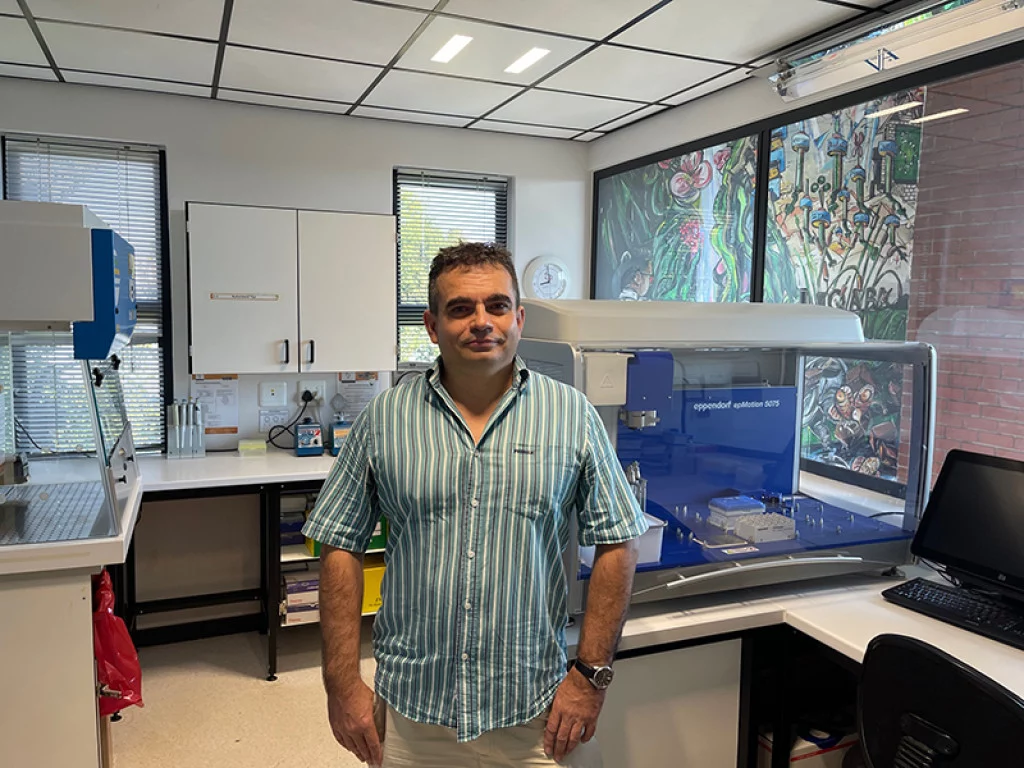
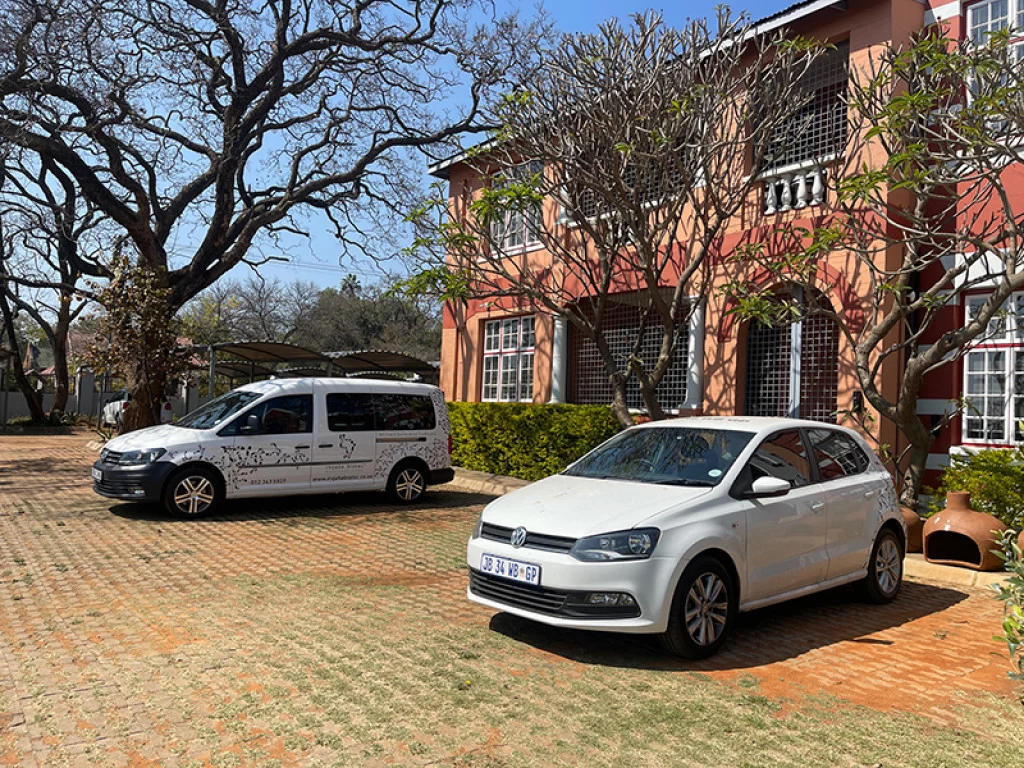
STRENGTHENING SUPPLY
A side effect of COVID-19 that resounded throughout industries across the globe was severe supply chain disruption.
“We saw during the pandemic how difficult it was to access certain materials like the plastic consumables that are used within our technologies, since all of them are produced outside of the continent,” observes Dr Preisig.
As such, a major priority for inqaba in the years ahead concerns strengthening supply chains and extending its reach to create an easily accessible network. This proved essential, now that demand has grown thanks to the burgeoning awareness and heightened relevance of genomics services in the wake of COVID-19.
“Moving forward, local production is extremely important. We will focus more on seeing what we can produce locally to create job opportunities and to ensure that we have back up for what happened in the last two years with all these shortages.
“The main focus is to grow our technologies and develop what we can locally. Some things will never make sense because our market is too small, but we must find those things that can actually be done.”
The growth of inqaba’s own footprint across Africa will further support this, as 2022 heralds the opening of new offices in Cameroon, Senegal, and Uganda. By so doing, inqaba will advance Africa’s competitiveness within the industry on an international scale.
“In South Africa and the other countries, we operate, there is not a very strong supply chain for these products that makes the researchers there able to compete internationally.
“Everything takes more time. You might have just finished something that other people could have done considerably more quickly, in which case you lose. This applies to research and academics, but also in the diagnostics field,” he explains.
“Our aim is to get the products that make the supply chain easier for all these customers. We open offices where we already have a good indication of this, and where we know, it will contribute to increasing research output and enable the location to become more competitive internationally.”
This strategic method of expansion is evidenced by the newly opened Uganda office. The launch of inqaba biotec East Africa Ltd Uganda (IBUG) is poised to play an instrumental role in furthering the country’s biotechnology journey, which remains untapped to its full potential.
The new IBUG facility in Uganda will further inqaba’s connection with its loyal network of customers, and will leverage its trusted relationships with researchers in the country which have been developed and nurtured over the past 20 years.
Placing a constant supply of molecular biology reagents, oligos, laboratory plastics, equipment, and molecular diagnostics products, inqaba is set to fulfil researchers’ needs in a timely manner, allowing them to remain at the forefront of their field. On-site engineers, meanwhile, provide the necessary backup for servicing instruments.
This is another step in facilitating inqaba’s aim of getting better support and logistics to its customers in the field of life sciences and molecular diagnostics as part of its contribution to further developing science and technology across sub-Saharan Africa.
Guiding the company for the decades to come will be its emphasis on local production, alongside continually growing inqaba’s operations and adapting to the new technologies that will inevitably be introduced.
“I always say that that’s the exciting thing about working in this field – there is always something new and it never gets boring!” Dr Preisig concludes.
As sub-Saharan Africa’s life sciences industry remains in its nascency, opportunities for development and progress abound. In a region that has the highest genetic diversity in the world, which is conveniently the most important resource for genomic studies, Dr Preisig and the inqaba team have their hands full in advancing genomics research and molecular diagnostics across Africa.



